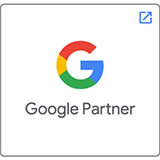Words Matter, but Keywords Matter More
Keywords: Connecting Clients to Your Content
Content is still king in marketing. Through content, you can establish yourself as a trusted authority for your customers or clients, and it is the heart of your brand. Content is more than just the words you choose to convey a message, though. Ensuring your content reaches your desired audience requires attention paid to your keyword choice, too.
So, What Are Keywords?
SEO Keywords are the words and phrases in your web content that help people find your website with search engines. Keywords can be singular words or more complex phrases integrated into your website copy. A well-optimized website will reach its target audience more successfully by using keywords to increase the likelihood of coming up as a top result for the potential customer’s search.
Content is your message, and keywords are turning up the volume on the most sought after and important parts of your message. If you know who you’re trying to speak to through your content, you can tailor your keywords to better capture their attention when they’re searching for answers.
Make the Most of Keywords
Keywords have been important since the early days of digital marketing. To rank higher on search engine results pages, SEO experts would heavily load website content with keywords – even without context. As digital marketing and search engines have changed over the years, the manner in which you should be using keywords to more effectively reach potential clients has also evolved.
Though keywords still matter, the manner in which they should be used to remain effective has changed. Google penalizes websites for “keyword-stuffing.” This is when a webpage is loaded with keywords or numbers to try to manipulate a site’s Google search result ranking. Keyword-stuffing includes: long lists of keywords without context or value, blocks of text listing locations where a site wants higher rankings, and repeating the same words and phrases so often that it no longer seems natural. Because Google sees this as creating a negative user experience, loading up a webpage with keywords now actually harms a site’s ranking.
Google now ranks pages based on relevance and value to a reader. This means keywords still matter, but they need to be intentional, well-placed, and useful in order to boost your site rather than penalizing it. Content should be written with the user in mind. Here are a few easy tips to keep in mind for making the most of your keywords:
- Start with the customer. Before doing anything else, try a little empathy. Who are you serving, what matters to them, and what do they need? If you start here and keep the answers in mind throughout your content creation process, your keywords will be successful.
- Quality over quantity. Keyword placement is more important than frequency. If you aren’t using keywords with context in mind, you’re doing more harm than good.
- Review your page with the customer’s experience in mind. Reread your copy after integrating keywords and have someone else with a fresh set of eyes do the same and provide you honest feedback. Does it sound redundant? Are you unnecessarily repeating yourself for the sake of keyword integration? You (and Google’s search rankings) want the reader to enjoy their experience when they visit your page, and if they’re bored to tears, you definitely won’t be rewarded for that.
- Check out the competition. Google your competitors and check out the title, descriptions, and content. Know what keywords they’re using so you’ll come up in the same search by your shared target clients.
- Take advantage of past and present client feedback. Listen to the people you have served – whether their comments are positive, negative, or simply inquisitive, there’s something you can learn from them. For example, if you receive a response to a contact form inquiry or email that says the potential client is “looking for an attorney to ___________”, pay careful attention to the word choice they used. Chances are, they aren’t the only potential clients who would conduct a search using the term(s) in the blank, and if you use the same word choice as your keywords, you’ll increase your odds of being at the top of their search response.
- Keep your goal in mind. What is the purpose of the content you created? If you’re trying to establish yourself as an authority on a topic and educate potential clients and/or peers on a subject, your keyword choice may be different than if your keyword intent is commercial.
- Expand your network. If you are creating blogs or long form content, share that off-site and on social profiles when you have the opportunity to do so. This will increase your ability to be discovered beyond a search query response. Expanding your network will expand your potential client base.
Optimize User Experience
Your overall goal for marketing should be to create a consistent and positive user experience. Positive results will generate even more positive results in the future because happy people share their experiences and spread your name in a business-generating manner.
Beyond choosing the right words to reach your target audience, you want to integrate those keywords seamlessly to enhance the user experience and create higher quality content. If you use your keywords haphazardly or too frequently, the result will feel insincere, inauthentic, and just plain boring.
Think your content marketing could use a little fine-tuning?
If you would like more information about our professional content writing services for law firms, we encourage you to get in touch. For a free consultation, call 954-523-2181 or inquire online today.






